Curious about a UW researcher?
Welcome to our blog series, “UW Researcher Spotlight.” These posts highlight University of Washington researchers who, as principal investigator—or “PI”—lead their teams on the path from idea to impact with the support of CoMotion. The resulting innovations have been licensed to industry, spun out as a startup, or licensed direct to the user from within the UW.
Stay tuned for profiles about UW researchers from computer science & engineering, life sciences, emerging tech, social sciences and more.
Meet Sharon Doty
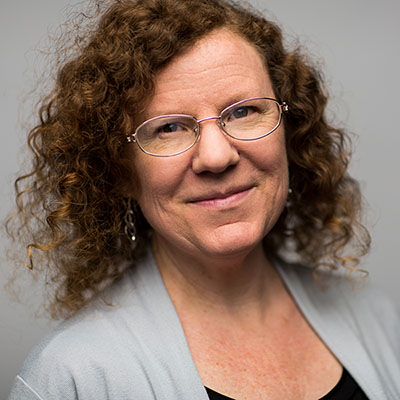
Sharon Doty, Adjunct Professor, Microbiology, Professor, School of Enviromental and Forest Sciences, University of Washington


Team:
Sharon L. Doty, Professor
Andrew W. Sher, Research Scientist 3
When did you file your first Record of Innovation (ROI) with CoMotion?
2008, with a total of thirteen ROIs.
Tell us about your innovation:
In most cases, the technology is the microbial strains with specific properties for improving plant growth or health or detoxifying specific pollutants.
What problem does your innovation solve?
To improve plant growth for agriculture, bioenergy, or forestry in a more environmentally sustainable way, bioinoculants provide a viable alternative to chemical fertilizers and pesticides and can increase water use efficiency and tolerance to drought. Success in environmental restoration of contaminated sites can be greatly improved by coupling phytoremediation, which is the use of plants to remove pollutants, with pollutant-detoxifying microbes that live within the plants, termed endophytes.
What impact are you having?
Many of the strains that have completed field trials and begun commercialization of the bioinoculants have been licensed to IntrinsyxBio and IntrinsyxEnvironmental. For example, my pollutant-detoxifying bacteria are being used to clean up sites around the country. Some of my “probiotics for plants” have enhanced wheat yields over a ton per hectare in the UK, and, in California, have increased strawberry fruit yields by over 50%, and processing tomato yields by over five tons per acre.
What funding have you received?
Early in the discovery phase we received funding from the United States Department of Agriculture and National Science Foundation. With support from the Washington Research Foundation, the Byron and Alice Lockwood Foundation, and the CoMotion Innovation Gap Fund, we were able to explore new directions leading to innovations for commercialization.
What’s the latest?
We have many more endophyte strains in the pipeline for biocontrol of agricultural pathogens and for increasing plant growth with reduced inputs. My goal is to broaden the use of the plant microbiome to increase environmental sustainability of agriculture, forestry, and biomass production, and for environmental services including carbon sequestration, which is the capturing and storing of atmospheric carbon dioxide, for climate change mitigation and for environmental restoration.

Grass grown in nutrient-poor soil either with poplar tree endophyte (left) or not (right)
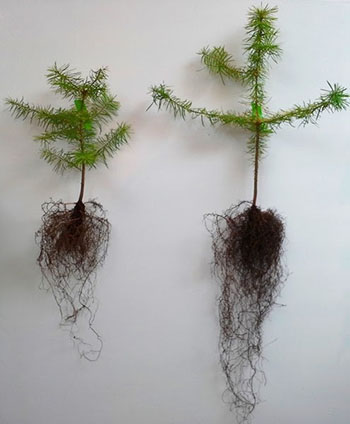
Douglas-fir without and with endophytes from poplar and willow
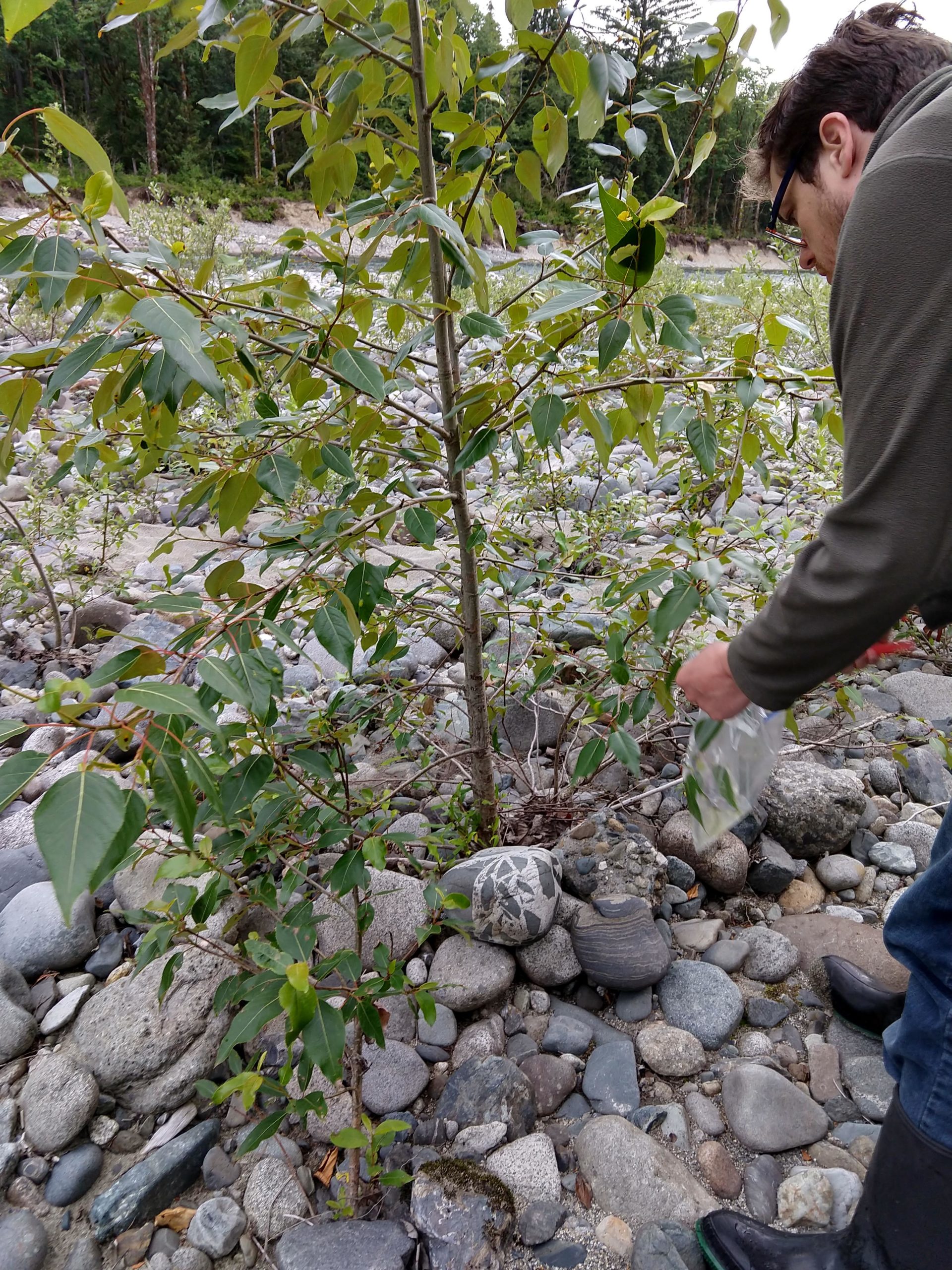
Research Scientist Andrew Sher sampling poplar at Skykomish River
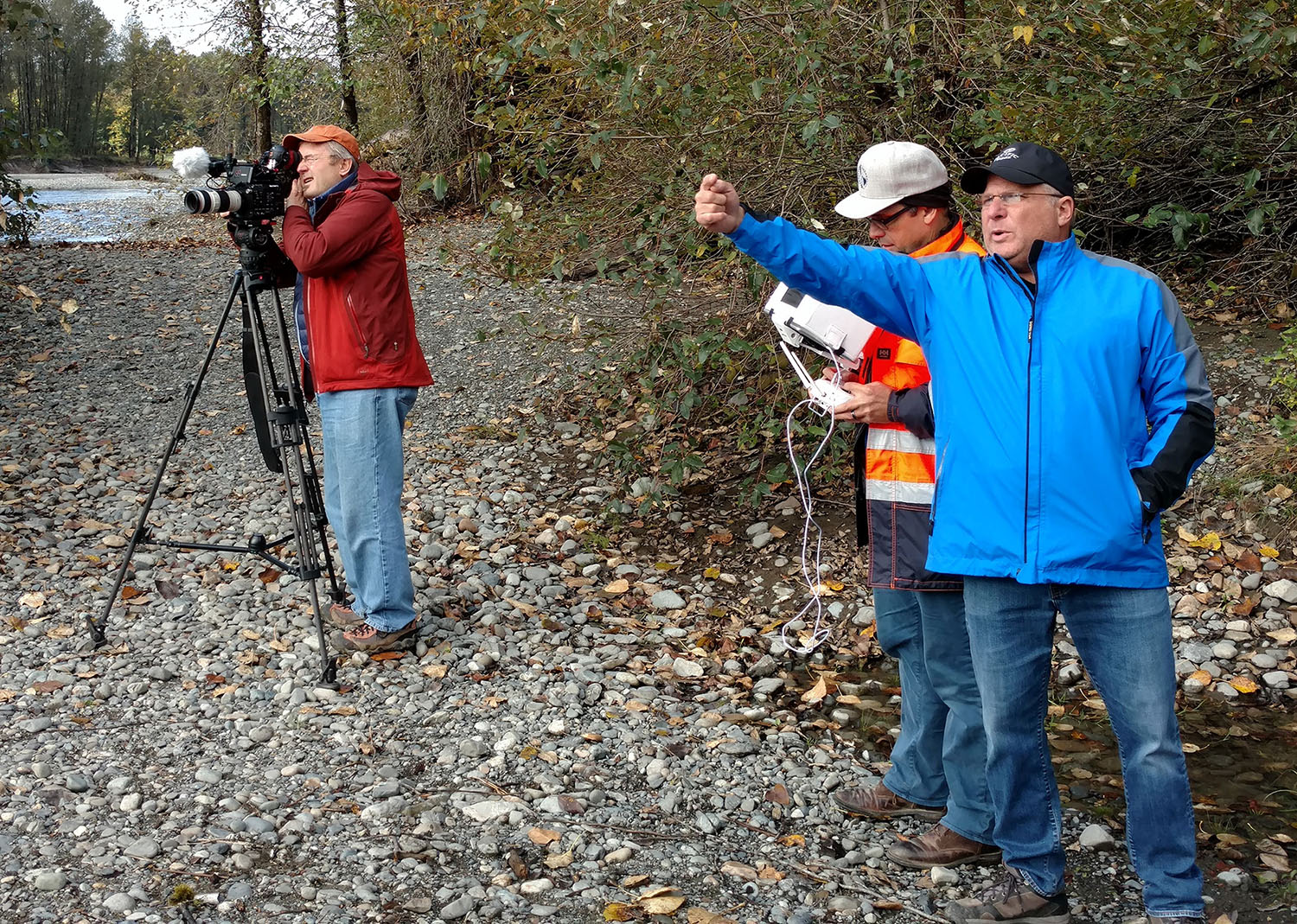
Filming of the Snoqualmie River site as part of the Illumina video series on “Adventures in Genomics“

Example of the diversity of endophyte strains
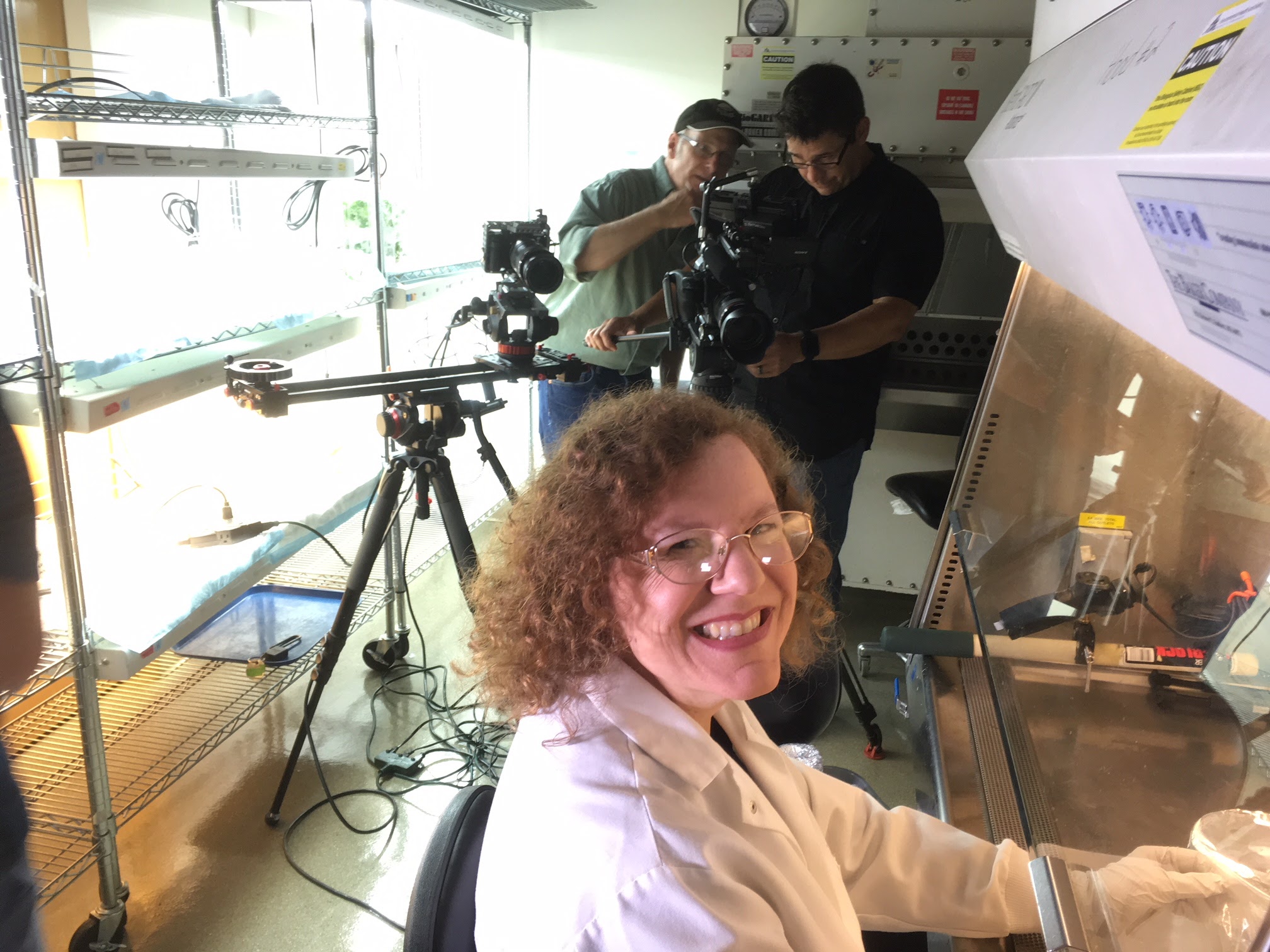
Dr. Doty in lab during Illumina video shoot

Inhibition of the agricultural pathogen, Rhizoctonia solani, by a poplar endophyte

Dr. Doty in the lab
Commercialization advice?
Seek help from CoMotion staff. They have been very helpful and supportive throughout the journey and can provide lots of resources from funding to training to mentoring.
What CoMotion services and resources have you used and how did they help?
I’ve received funding through the Innovation Gap Fund that was especially critical during lean grant times and allowed us to move into other areas for new innovations.
What do you like most about working with CoMotion?
Having one contact person all these years was really helpful to me since my innovation manager knows all about my research and serves as the liaison to company partnerships.
Tell us a fun anecdote about your journey on the path to commercialization:
In 2017, the sequencing company, Illumina, filmed us as part of their series on “Adventures in Genomics” with our story on “Power of Plant Partnerships”. That was a really fun experience having the film crew come to visit one of our research sites at the Snoqualmie River and to turn our labs into a filming studio.
Background and Bio:
I am a plant microbiologist with a B.S. in Genetics (UC Davis), Ph.D. in Microbiology (UW), and postdoctoral training in Plant Biochemistry (UW). While I was doing poplar tissue culture as a postdoc, I kept seeing a microbial “contaminant” in my plant cultures. Identification of it being a Rhizobium species known to provide the essential nutrient, nitrogen, to legumes and not to non-legumes like poplar, led to a new direction in my research towards understanding the potential benefits of the natural microbiota of plants. It was through “following the data” over the years that led to our projects on harnessing the power of the plant microbiome for nutrient acquisition, biocontrol of pathogens, detoxification of pollutants, and improved tolerance to abiotic stresses including drought.
Connect:
Lab website: https://sites.uw.edu/sldoty/
Follow us on Twitter: @dotylab
Do you have a great idea? Connect with UW CoMotion
File your Record of Innovation or Request a Consultation with an innovation manager.
Subscribe to our newsletter to stay up to date about programs, resources and events.
About UW CoMotion: CoMotion at the UW partners with the UW community on their innovation journey, providing tools, connections, and acumen to transform ideas into economic and societal impact.